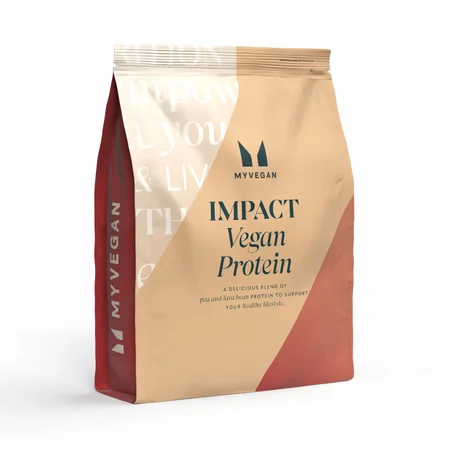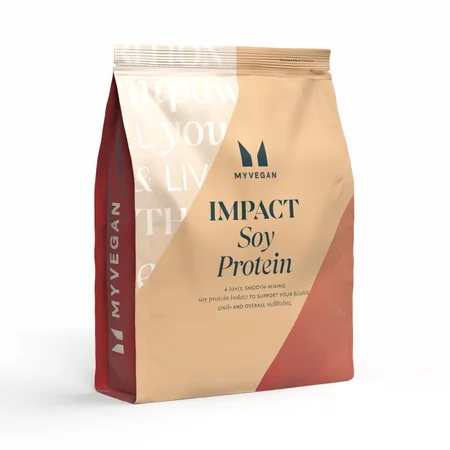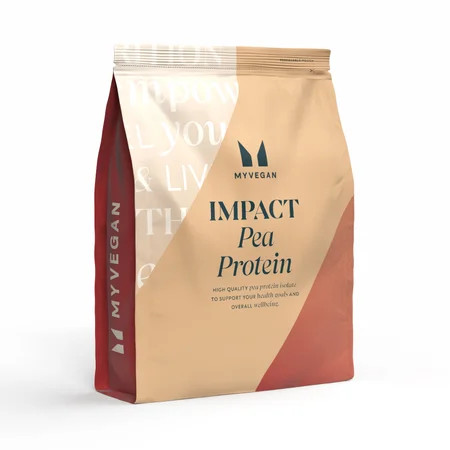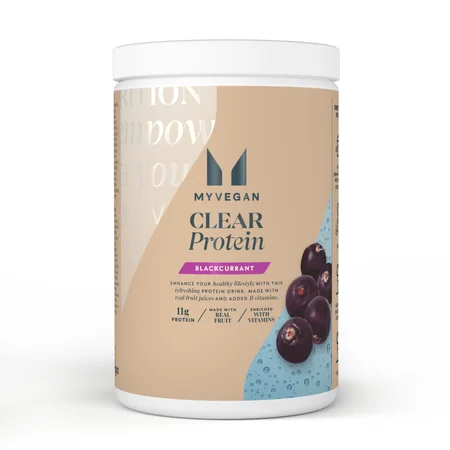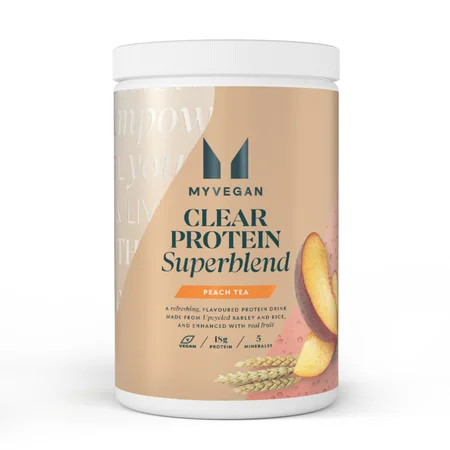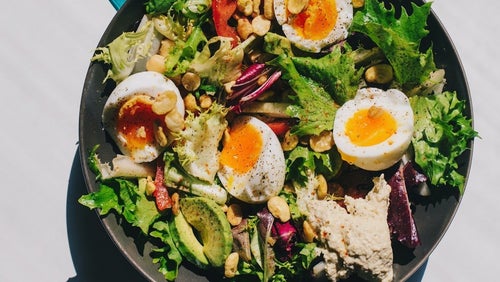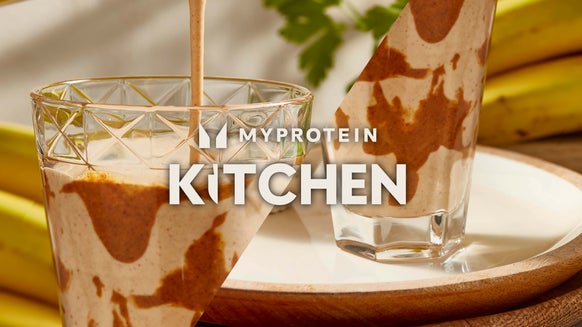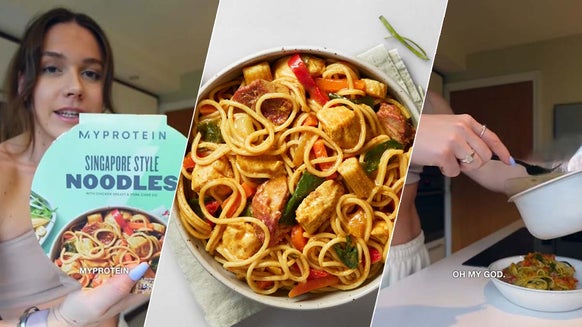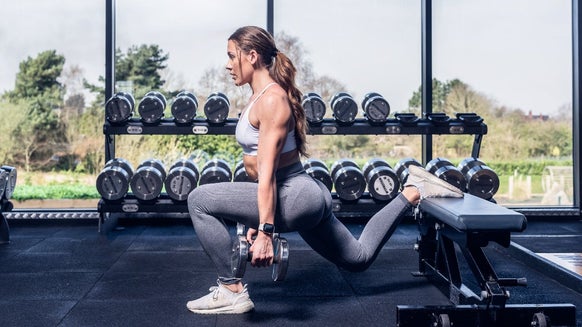Vegan Protein Powder | Best Vegan Alternatives To Whey Protein


We’ve all heard of protein powders, but why would someone choose a plant-based option over whey protein? Plant-based, vegan protein powders have come a long way from their chalky roots — there are now so many different options when it comes to selecting a protein powder, we’re spoilt for choice. Read on to learn which one may be the best fit for you.
Jump to:
- Why take protein powder?
- What is whey protein made from?
- Is whey protein vegetarian?
- Is whey protein vegan?
- Benefits of plant-based protein powders
- What is a complete protein source?
- Vegan protein powder
- How to choose what’s best for you
- FAQs
Why take protein powder?
Protein is a key nutrient for overall health, but it’s even more important for people who hit the gym regularly, as protein helps with healing, growth, and repair of our muscles.1 While there are many food sources of protein, protein powder is an efficient way to boost your daily protein intake to meet your fitness and body composition goals.
While whey and casein protein powders are the most popular options, many people prefer plant-based protein powders instead of products produced from milk and other animal sources. Whether you have a dairy allergy or intolerance or avoid animal products for another reason, there are plenty of high-quality plant-based protein powders.

What is whey protein made from?
Remember “Little Miss Muffet” from the children’s nursery rhyme? She sat on her tuffet eating her “curds and whey” — maybe she was trying to build muscle! Whey protein is one of the major components of milk, and is derived from the liquid that separates from the curds during the process of making cheese. This natural by-product of cheese production accounts for about 20% of the protein in cow’s milk.2 However, whey remains low in lactose content which makes it easily digestible.
There are three forms of whey protein sold on the market — whey concentrate, whey isolate, and whey hydrosylate. The liquid that’s left from the cheese-making process is refined further, removing water, fat, and lactose content, leaving the powder we’d recognise as whey concentrate. Whey isolate and hydrolysate are processed even further to a more concentrated form (isolate) and then broken down into smaller amino acid chains (hydrolysate), which can have other benefits of quicker of absorption and digestion.
Is whey protein vegetarian?
Foods that are from animals directly — like chicken breasts, ground beef, or turkey (meat) — are what vegetarians choose to avoid. However, most vegetarians consume products that are made by animals or from animal products. While these decisions are personal and may be different from one vegetarian to another, many will still eat chicken’s eggs or honey made by bees. The category of dairy products, made from cow’s milk, is a primary source of protein for many vegetarians who don’t eat meat.

Is whey protein vegan?
People who follow a vegan diet would most likely choose not to consume whey protein, as they avoid both animal products and products produced by animals.
As whey protein is a by-product of the cheese making process, and therefore contains dairy, it’s not vegan.
Benefits of plant-based protein powders
Plant-based proteins are made from vegan-suitable sources, meaning there are no animals involved in the process. As well as having a lower environmental impact, plant-based diets offer a wide variety of nutrients that can support gut health and reduce the risk of chronic conditions.2
What is a complete protein source?
Proteins are made up of amino acids. The amino acid sequence of each protein is unique, but some proteins contain more amino acids than others. A protein that contains all the amino acids that our bodies need to function is considered a “complete” protein. Many animal proteins contain all of these amino acids, making them complete proteins. While some plant proteins like pea or rice protein on their own are not complete (they do not contain all the amino acids), you can often choose a protein powder that contains a blend of plant-based proteins containing all the amino acids. Soy protein is a complete plant-based protein, making soy protein powder an easy way to get all amino acids your muscles need.

Vegan protein powder
Make sure you're sitting comfortably while we talk you through your options.
Impact Vegan Protein
Vegan protein blend is made from pea and fava bean isolates, which have complementary amino acid profiles, making it a complete protein source. Vegan Protein Blend contains no artificial colours or flavours, and it’s also low in sugar.
Vegan Protein Blend may have a slightly different texture to a typical whey protein, but it mixes well into smoothies with other ingredients. It contains 21g of protein (including 5g of BCAAs) and 110 calories per serving, making it a great option if muscle growth is your goal.
Soy Protein Isolate
Soy protein isolate is a complete protein made from defatted soybeans, keeping it high in protein and low in fat and sugars. Soy protein is a complete protein source, and each serving of Soy Protein Isolate contains 27g of high-quality protein per serving.
Nutritionally, it’s hard to beat soy protein as the ideal plant-based protein powder, but some people are allergic to soy, so it will not be suitable for them.
Impact Pea Protein
Pea protein is another popular choice of plant-based protein powder. Pea Protein Isolate is highly refined, meaning it’s high in protein but lower in fat and carbs.
It’s completely soy and dairy free for those with allergies and while it’s slightly lower in protein per serving than Soy Protein Isolate, 23g of protein makes Pea Protein Isolate a great option for those on plant-based diets.
Clear Vegan Protein
Clear Vegan Protein is not only a uniquely refreshing alternative to milky protein shakes, it’s also infused with real fruit and has added B vitamins. It contains 10g of plant-based protein per serving and makes for a refreshing whatever the weather.
Plant Protein Superblend
Made from upcycled barley, leftover by beer brewers, this protein uses products that would otherwise go unused.
The Plant Protein Superblend is a complete protein source, offering 20g of protein per 28g serving. It’s also high in vitamin B12, copper and potassium to support your metabolism and keep your muscles healthy. It’s also been designed with iced or hot cafe-style drinks in mind, making this shake the perfect way to inject some protein into your afternoon iced coffee.
Clear Protein Superblend
The newest member of the vegan protein family — Clear Protein Superblend. The newer and juicier sibling of the Plant Protein Superblend. Also made from upcycled rice and barley that would also go unused, helping to reduce food waste one shake at a time.
And if that wasn’t good enough, it also contributes 18g of complete juicy protein to your daily intake.
How to choose what’s best for you
When considering a plant-based protein powder, think about a few factors:
Your goals
If you’re trying to bulk up or build muscle, you might want to choose an option with higher protein quantities per serving (like soy or the vegan blend). If you just want to boost your daily intake of protein, any choice will help you meet that goal.
Dietary restrictions
Do you have any allergies, intolerances, or digestive issues with the sources of these plant-based proteins? Consider how they might make you feel and decide which ones would most seamlessly fit into your routine.
Your overall diet
If you follow a vegan or vegetarian diet, any of these plant-based proteins would be an excellent choice to meet your goals, but consider how important it is for you to get a complete protein in your protein powder. If you eat a well balanced diet with other plant-based protein sources throughout the day or eat mostly plant based but know you get complete proteins from other food groups, it may matter less.
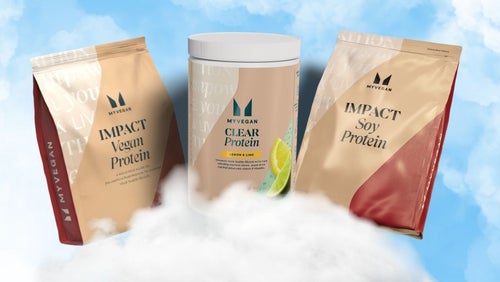
Myprotein's Best Vegan Protein Flavours, Ranked By You
There's more than one way to get ve-gains...
FAQs
Is whey protein vegetarian?
Yes, vegetarians eat most products that come from animals such as milk and cheese, therefore whey protein is vegetarian.
What is whey protein made from?
Whey protein is made form the liquid that separates from curds of milk in the making of cheese. The liquid is refined, removing carbs, fat an lactose, leaving powdered whey protein.
Is whey protein vegan?
Whey protein is not vegan as it is derived from animal product.

Take home message
While we might think of whey as the gold standard of protein powder, there are many impressive plant-based protein powders to choose from today. Plant-based proteins can be as effective as animal-based products when it comes to supporting your health, muscle growth and recovery.2 Consider your preferences, overall diet and goals when selecting which plant-based protein is the best fit for you.
FIND MORE HERE:
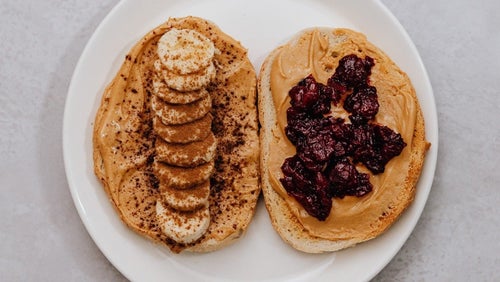
10 Foods High In Magnesium
Peanut butter on toast is definitely on the menu.

Claire is a Registered Dietitian through the Academy of Nutrition and Dietetics and a board-certified Health and Wellness Coach through the International Consortium for Health and Wellness Coaching. She has a Bachelor of Science in Biology and a Master’s degree in Clinical Dietetics and Nutrition from the University of Pittsburgh.
Talking and writing about food and fitness is at the heart of Claire’s ethos as she loves to use her experience to help others meet their health and wellness goals.
Claire is also a certified indoor cycling instructor and loves the mental and physical boost she gets from regular runs and yoga classes. When she’s not keeping fit herself, she’s cheering on her hometown’s sports teams in Pittsburgh, or cooking for her family in the kitchen.
Find out more about Claire’s experience here.
- Pasiakos, S. M., McLellan, T. M., & Lieberman, H. R. (2015). The effects of protein supplements on muscle mass, strength, and aerobic and anaerobic power in healthy adults: a systematic review. Sports Medicine, 45(1), 111-131.
- USDA. 2015. Agricultural Marketing Service. AMS – USDA. [Online] April 24, 2015. [Cited: January 15, 2019.]
